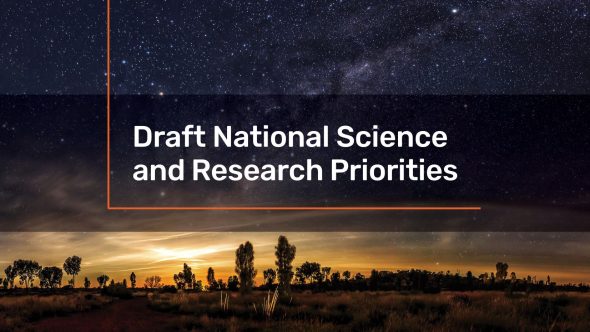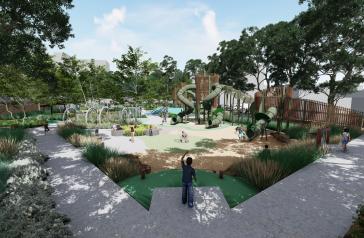Given their fundamental importance to Australia’s unique knowledge systems and national identity, Indigenous knowledges must be a standalone priority in Australia’s next National Science and Research Priorities – as well as interwoven throughout the rest of the new priorities.

In our submission on the Draft National Science and Research Priorities – drafted in partnership with senior Indigenous leaders in science and research – Science & Technology Australia calls for a standalone priority “to elevate and invest in First Nations perspectives on science, technology and innovation”.
These priorities crystallise what is important to the nation and will guide Australia’s research agenda for the coming decade – and what research gets funded – which is why it is such a crucial opportunity.
“Indigenous knowledge is important in its own right to Australia – it’s the bedrock on which our country’s knowledge systems are built,” said Science & Technology Australia CEO Misha Schubert.
“It is what makes Australia – and our science and research endeavours – unique in the world. Indigenous knowledge should not be seen just as an enabler of other objectives in Australian science and research.”
In addition to interweaving Indigenous knowledge through all the other priorities, a standalone priority to elevate and invest in Indigenous knowledge would strongly signal to the research community and the nation that this is core work for Australia – and central to our national science, technology and research ambitions.
“It would also be a powerful signal to Australia’s research funding agencies to invest in Indigenous people and perspectives in research, science, technology and innovation.”
“This crucial signal can help to unleash a transformative moment for Australian STEM – and start a deeper investment in supporting more Indigenous people and priorities into our national science and research effort. It would be a powerful legacy for all the generations of Australians to come.”
Together with our Indigenous members and stakeholders, we were deeply disappointed the draft priorities do not yet reflect the exciting ambition articulated by Industry & Science Minister Ed Husic for the refreshed priorities to include ‘elevating and investing in First Nations perspectives in science, technology and innovation. That must be rectified in the final priorities.
STA thanks the Department and Chief Scientist for their engagement to understand the importance of including both a standalone and interwoven approach on Indigenous knowledges in the proposed final priorities.
Senior Indigenous stakeholders who contributed to the submission include National Indigenous STEM Professionals Network Chair Associate Professor Bradley Moggridge, Professor Chris Matthews, Chair of the Aboriginal and Torres Strait Islander Mathematics Alliance, CSIRO Board Director Professor Alex Brown, Chair of Universities Australia’s Deputy Vice Chancellors Indigenous network Professor Michelle Trudgett, Professor Ian Anderson, Deputy Vice-Chancellor (Academic) at the University of Tasmania, Associate Professor Sadie Heckenberg – Chair of the National Aboriginal and Torres Strait Islander Higher Education Consortium, Associate Professor Corey Tutt OAM, founder and CEO of Deadly Science, Toni Hay, founder of Indigenous Climate Change, and Dr Katrina Wruck, Mabuigilgal/Goemulgal First Nations Postdoctoral Research Fellow at The University of Melbourne.
Read the full submission to the Draft National Science and Research Priorities here.
Learn more about Australia’s draft National Science and Research Priorities on the Department of Industry, Science and Research website.








